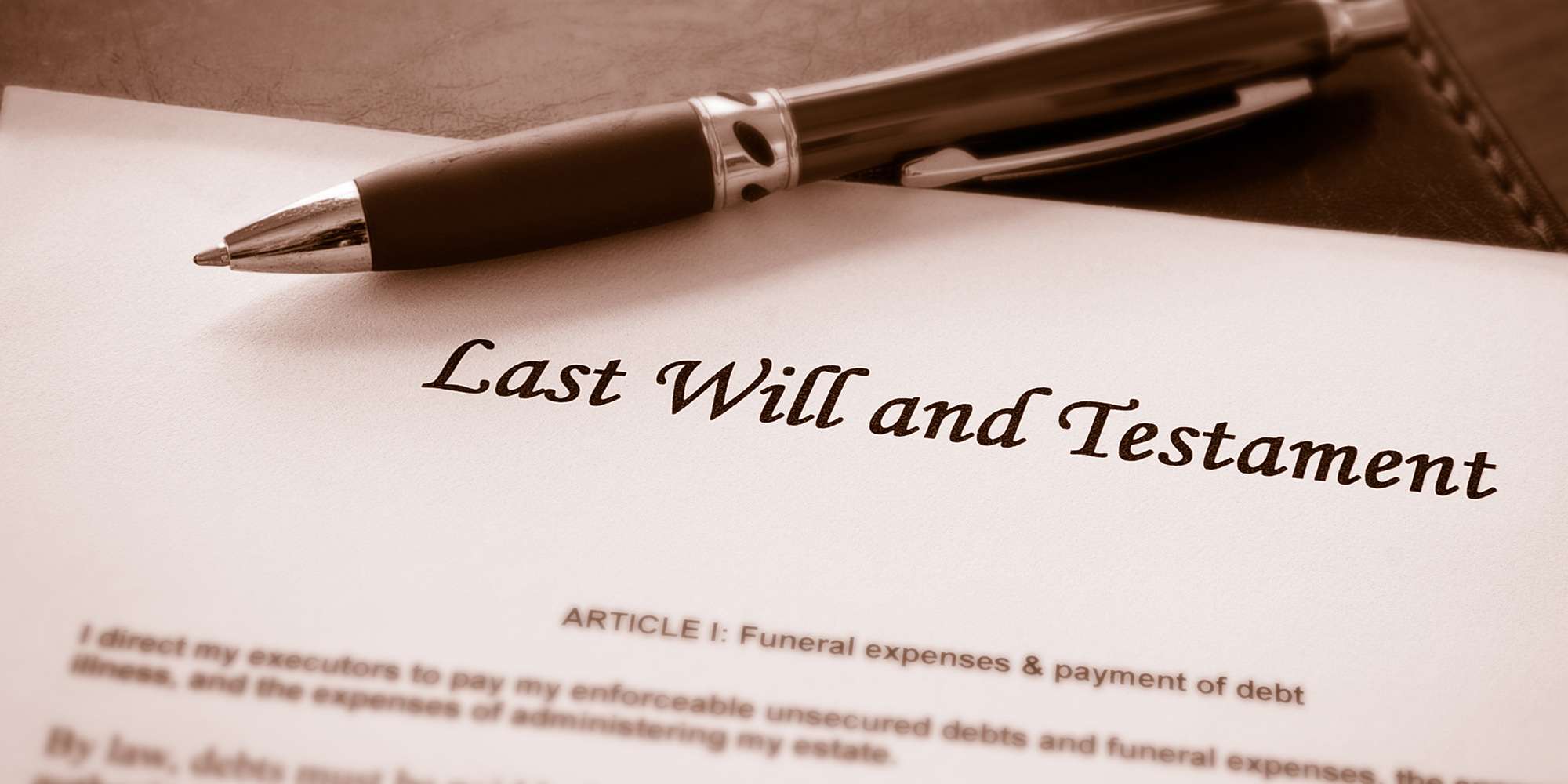
What Happens to My Will After I Pass Away?
A will is a primary tool for an estate plan. Although most people understand this, and know what a will is, people often have misconceptions

A good man leaves an inheritance to his children’s children. (Proverbs 13:22) Fifty-five percent of American adults have no will or estate plan. If you brought children into this world, or have others that depend on you, then you probably want to be sure that if something happens to you, your loved ones will not have legal or financial issues to compound their grief.
Probably one of the best things that you can do for your loved ones is to buy life insurance, to make sure that your mortgage gets paid when you are gone and that you provide funding to make up for the lost income you are no longer able to provide. In addition to this, you will want to make sure you have some estate planning in place. It is easy to neglect estate planning when we are young, but as we get older, our responsibilities and financial situation tends to become more complex, and more people come to depend on us. At some point failing to take some action towards a basic estate plan becomes irresponsible.
The general goal of any estate plan is to ensure that our assets will be distributed according to our wishes. But more may be needed. You and I need to ensure that we are providing support and financial stability to our families. There is really no excuse for any responsible, married adult with children to not have some form of life insurance policy. And if we are wealthy enough so that financial stability for our family is not a chief concern, then estate planning may be even more advisable, for (among other reasons) simply reducing or avoiding unnecessary taxes and expenses. Beyond these financial considerations, however, responsible estate planning can also at least minimize some of the stress to your loved ones if you leave them unexpectedly.
Estate planning is not a one size fits all endeavor, of course, and some of us may have more specific concerns. Perhaps you have specific loved ones with special needs. Or maybe you are worried about loved ones who are irresponsible with money, or who have people around them that could take advantage of them and their inheritance when you are gone. It might even be that you are afraid that creditors of some loved one could end up with their inheritance. If you own a business, then succession planning for the business might be a prime concern. Or maybe you just want to support a favorite charity or other worthy cause with your estate. None of these things are possible without planning.
A starting point in any estate plan is usually a will, also known as a “last will and testament.” I am often asked, “What happens if I die without a will?” Well, for one thing, this does tend to leave families with less certainty and more stress. If you die without a will or other estate plan, “intestate succession laws” will decide which family members will inherit your estate. This can lead to more fighting between family members, and often entails more legal procedures to transfer properties and access accounts, regardless of family conflicts. The stress of losing a parent is bad enough without having family members fighting over how the estate should be divided. This is obviously a greater concern with larger estates and more complex families, e.g., children from different marriages, grandchildren, and common law marriages.
Having a will not only makes it possible for you to achieve some of the basic and more specific goals of an estate plan, but it also makes it much easier for your family or loved ones to transfer property and access accounts. The probate of a will is usually a pretty simple procedure if the will is prepared correctly; and can often be accomplished quickly with minimal legal expense. Although it is not necessary to do so, it is usually advisable to have a will prepared by an attorney to avoid mistakes. Mistakes can be costly or even invalidate the will. And there are far too many technical issues or problems that can arise in wills to give the topic any meaningful coverage in this brief article.
I am sometimes asked, if a will has to be notarized. Technically no. In fact, I have even probated handwritten wills, scribbled on scratch paper. Referred to as a holographic will, a document entirely handwritten by a person with a clear testamentary intent can be enforceable, provided you have disinterested witnesses who can testify in the probate court as to the handwriting. Of course, I would not recommend using a holographic will, except for in emergency situations. But a holographic will could be used to make a last minute will after an accident or before some operation. A holographic will may be the only way to make a will if none exists, or could be made to change an existing will.
Ideally, a will should be prepared by someone who knows what they are doing. And you want the will to be “self-proving.” A self-proving will must be in writing; signed by the testator, or another person at his direction and in the testator’s presence; it must also be attested to by at least two credible witnesses over the age of 14, who personally witnessed the signing of the will. Finally, a self-proving will needs to be signed by the person making it, and the two witnesses, in the presence of a notary, and should include an affidavit that proves who you are and that each of you knew you were signing the will. A self-proving will makes probate easier because the court can accept it without any witnesses having to appear in court.
A will is usually the best starting point, central to any estate plan; but in many cases you might want more. I usually recommend life insurance, and in many cases it might be advisable to establish one or more trusts. You can combine life insurance and a trust (or trusts) to create one or more Life Insurance Trusts as well. This may be one of the greatest things you could do for your children. You might also consider using payable on death accounts as part of an estate plan. And in certain cases you may want to make use of gifts during your lifetime to fund trust accounts in order to minimize estate tax obligations. I am asked about estate taxes a lot. Fortunately, under the current tax laws, most estates are not subject to estate taxes. In 2022, the federal estate tax ranges from rates of 18% to 40%, but generally only estates with assets over $12.06 million will have to pay.
Estate planning is not about planning for your death so much as it is simply a part of living a responsible life and looking out for your family. If you have not started to do any such planning, it may well be time to start to consider it. What would happen to your family if the unthinkable were to happen today? Would they know what to do? Could they pay off the mortgage, or would they have to move? Would there be money for college? Would they know the first thing about what to do?
A friend told me recently that when her mother passed away that it really felt like a blessing how her mother had taken care of everything – from her will, to payable on death bank accounts, right down to her funeral arrangements and cemetery plot. The only decisions my friend had to make were what flower spray to put on top of her mother’s casket. Her mother had already done everything else. Preplanning, and just generally having everything in place, really does make things easier for grieving families.
When you do make time to speak with an attorney about these estate planning issues, here are a few suggestions as to what you might try to do in advance. Make some notes regarding your goals and specific objectives. Write out the names and birthdates of family members or other beneficiaries and any specific concerns you may have for any of your beneficiaries. Prepare a list of all your assets (with approximate values), your debts, your various accounts and any life insurance policies. Also make sure to bring copies of any estate planning documents you already have in place. You may have a simple situation that calls for only a basic will, or your needs may be more complex. But regardless of your situation, taking care of these issues to the best of your ability may be the most responsible thing that you can do.
I hope that this article has been informative to you. And if it got you thinking about some things you have been putting off for a long time then that is even better. But don’t let those thoughts simply fade away. Remember, it is very easy to procrastinate these issues. You don’t have to call me, but take some action today if there are estate planning issues you know you need to handle. Of course I am happy to speak with you as well. I can help with your estate planning needs. Or if you are the loved one of someone who recently passed and you are in need of an estate lawyer or probate lawyer, I can help with this too. So feel free to pick up the phone and give me a call at 281-954-6270.

A will is a primary tool for an estate plan. Although most people understand this, and know what a will is, people often have misconceptions

A good man leaves an inheritance to his children’s children. (Proverbs 13:22)
Fifty-five percent of American adults have no will or estate plan. If

Welcome to Medearis Law Firm, PLLC! We are here to help you navigate the intricate world of real property taxes in the great state of